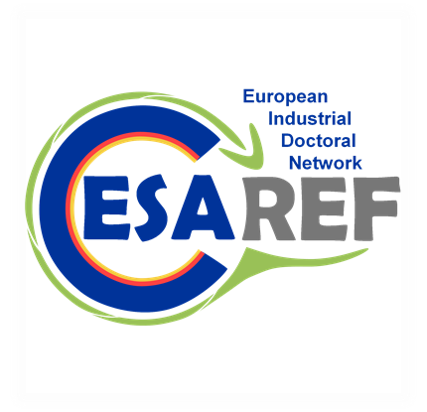The recruitment campaigns of the 15 PhD students are now closed.
Recruitment process
A 1st recruitment campaign took place from April, 27th to July, 25th, and is now closed.
A second recruitment campaign took place from July, 25th to October, 25th, for the PhD 08 and PhD 13 and is now closed.
Admissibility Requirements
Applicants need to fulfill eligibility criteria
1. Supported researchers must be doctoral candidates, i.e. not already in possession of a doctoral degree at the date of the recruitment. Researchers who have successfully defended their doctoral thesis but who have not yet formally been awarded the doctoral degree will not be considered eligible.
2. Conditions of international mobility of researchers: researchers must undertake trans-national mobility (i.e., move from one country to another) when taking up the first appointment (first recruitment period within CESAREF project). At the time of selection by the host organization, researchers must not have lived or carried out their main activity (work, studies, etc.) in the country of their host organization for more than 12 months in the 3 years immediately prior to their recruitment. Short stays, such as holidays, are not considered.
For example, if you apply for a PhD between Norway and France, starting in Norway for 9 months and continuing in France, you should not have spent during the last 3 years more than 12 months in Norway, but there is no limitation related with your previous stays in France.
For further information regarding the eligibility criteria, please refer to the official documents of the funding agency (pp. 79-80).
Application materials
Candidates send the following documents (provided in English language and combined into a single pdf file)
to the Recruitment, Training and Skill Progress Committee (RTSPC) of CESAREF:
The Recruitment, Training and Skill Progress Committee (RTSPC) establishes well-defined recruitment criteria to be used by all partners and ensure fairness of selection, in accordance with the Charter & Code for researchers. Therefore, the pre and final selection is made in a collective, open, transparent, and merit-based process, led by the RTSPC.
- CESAREF_PhD_Application_Form to be filled
- Curriculum Vitae: a professional-scientific CV should contain your name (in capital letters), your first name (in small letters), a photo, your birthdate or your age, the main academic degrees you got with date of diplomas obtention and grades, the different personal experiences (internships and jobs) that could demonstrate that your current skills could be in line with the CESAREF PhD topics for which you would like to apply ; ideal CV format is European format.
- Cover letter, indicating the selected project(s) and the motivation for your choice. Discuss your skills adapted to the selected topic. When possible, to support your arguments, indicate reference persons (Name / Institution / Email) who could agree to recommend you during the CESAREF recruitment process.
- Copy of your ID card or other form of identification
- Certificate of master’s degree (or equivalent) with transcripts of records
- Summary of the master’s degree thesis
- Work experience certificates, if applicable
- Proof of English proficiency, if possible
All official certificates should be provided in their original European language or with an associated official English translation for non-European documents.
In case of open questions, please contact the main supervisor of the PhD position that you are applying for.
Contract, salary and benefits
The successful candidates will receive an attractive salary in accordance with the Marie Skłodowska-Curie actions (MSCA) regulations for PhD students. The exact salary will be confirmed upon appointment and is dependent on the country correction factor (to allow for the difference in cost of living in different EU Member States). The pay includes a living allowance (€3400/month), a mobility allowance (€600/month) and a family* allowance (if married or with children; €660/month). Taxation and social (including pension) contribution deductions based on national and company regulations will apply.
*Family = be married / be in a relationship with equivalent status to a marriage recognized by the legislation of the country or region where it was formalized/have dependent children who are being supported by the researcher.
CESAREF being a network of Industrial Doctorates, each PhD student will be recruited 18 months first by the industrial and then 18 months by the academic in charge of its co-supervision. Researchers are employed on fixed-term contracts and are registered as staff candidates for PhD degrees. They are entitled to pension contributions, paid holidays, and other employment benefits as governed by the universities and industrial companies.
In addition to their individual scientific projects, all PhDs will benefit from further continuing education, which includes a variety of training modules (interactive and international) as well as transferable skills courses and active participation in workshops and conferences. To prepare young researchers for their future careers, a Personal Career Development Plan (PCDP) will be developed together with the RTSPC, the PhD-SC, and the PhD student.
[/ul-element-text][/ul-element-colonne]



